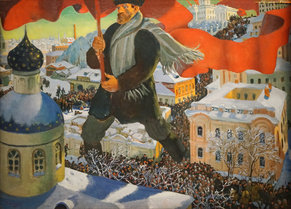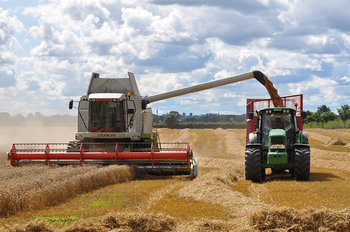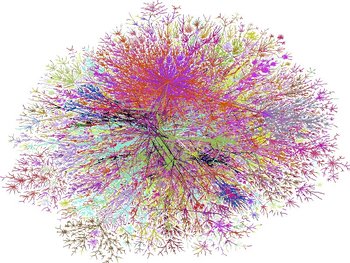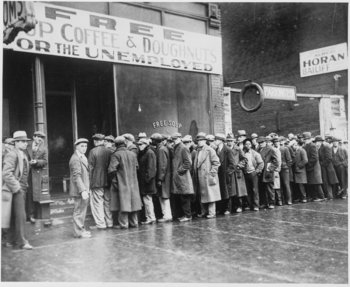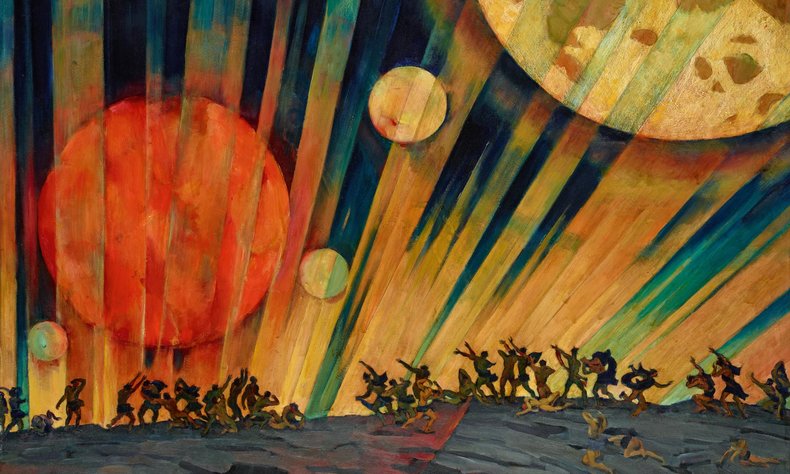
Communism
Communism is an authoritarian system that implements socialism with centralized planning whereby a bureaucracy attempts to direct and control all the resources of a society including all land, buildings, machines and labor. In the 20th century, this was implemented by the Soviet Union and China. Both systems are largely viewed as failures that produced low quality of life, ecological disasters and famine such as the Russian Famine of 1921–22, Soviet Famine of 1932–33 and the Great Chinese Famine 1959-61.* As socialism involves taking all property in the name of the state and removing all economic freedoms, it has only been fully implemented as an authoritarian one-party system. Both Soviet and Chinese communism were largely abandoned by the end of the 20th century in favor of a state-directed economy and free market liberalization.Technocratic Socialism
A variation on communism that would create a power structure based on merit in professions such as science, engineering and technology. This would replace government and industry with a bureaucratic elite that would supposedly make logic decisions in the best interests of the working class. The Union of Soviet Socialist Republics resembled a technocracy where scientists and engineers were well represented in power structures such as the Politburo. Technocratic socialism is analogous to having a single monopolistic technology company that owns all the resources of society and allocates all labor.State-Directed Economy
An economy dominated by a government whereby large firms are owned or supported by the state. These resemble large monopolies that suppress smaller competitors and have great power over the labor market as gigantic employers. Despite state ownership of firms, these do not produce a dominant working class but rather tend to resemble a system of crony capitalism.Theoretical Socialism
Academic models of socialism that have never been vetted in the real world. Societies and economies are the most complex of systems. It is likely to be impossible to impose dramatic change to these systems and predict what will happen based on pure conjecture. Theories in this space have a tendency towards magical thinking such as the idea that abolishing money will have purely positive effects.** Money in one form or another has been used by every complex society in history including traditional, capitalist and socialist societies.***Democratic Socialism
Democratic socialism is the pursuit of socialism that is consistent with democracy. In practice, this is a pragmatic approach to socialism that seeks to rein in what are perceived as the excesses of capitalism.**** For example, regulations that prevent environmental damage and taxation of corporations and the upper class to redistribute wealth often in the form of public services such as education and healthcare. Democratic socialists view full socialism as a long term goal without any concrete plan to actually remove all economic freedoms and confiscate all property for the state in the name of "the people", "the community" or "the proletariat."Social Market Economy
A social market economy is an economic and political system based on capitalism that uses taxation to fund generous public services such as healthcare, education and income support. These aren't socialist in any pure sense but achieve some aims of socialism such as elevating the working class and reining in the excesses of the wealthy through taxation. Most large developed nations are social market economies with a handful that are arguably closer to being a state-directed economy.† Some developed nations such as France, Sweden and Canada are often incorrectly cited as socialist when they are in fact social market economies.| Overview: Socialism | ||
Type | ||
Definition (1) | An economic and political system based on state ownership of all capital including land, buildings and machines. | |
Definition (2) | A society that prioritizes the needs of the working class. | |
Related Concepts | ||


